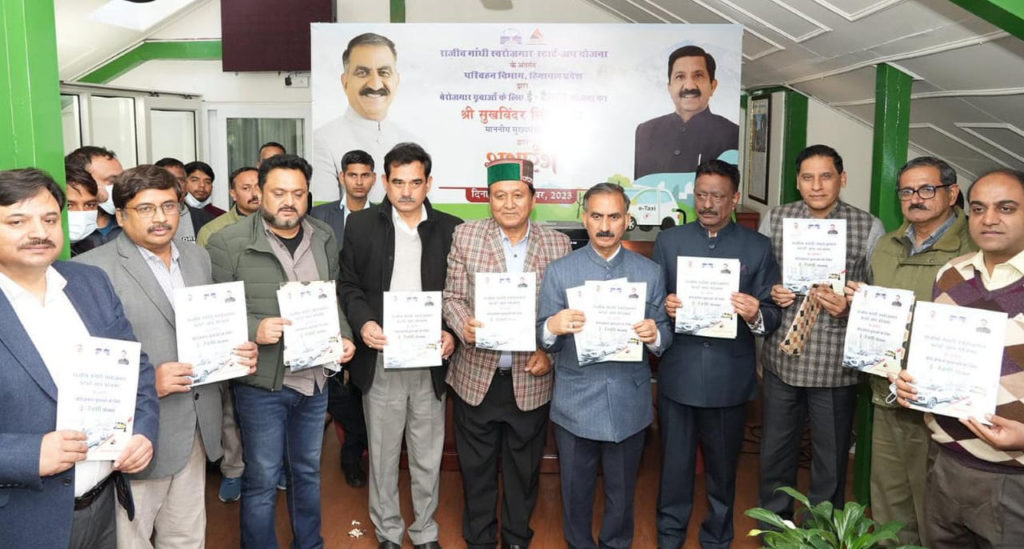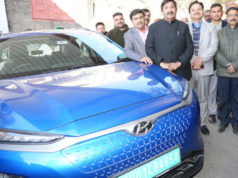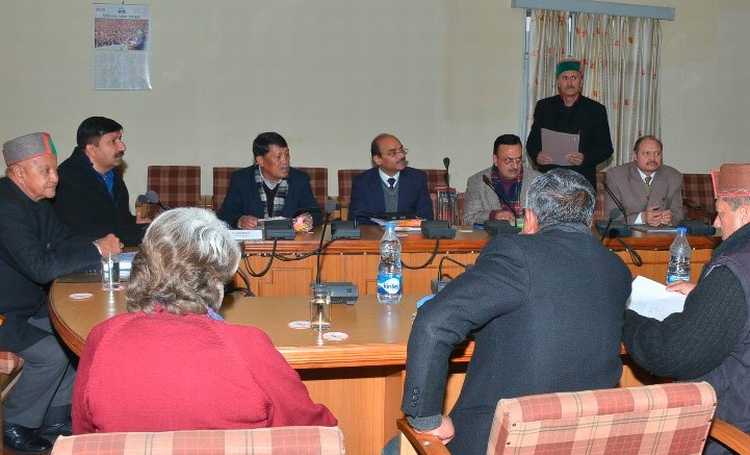Shimla – In a step towards sustainable and eco-friendly transportation, Himachal Pradesh Chief Minister Sukhvinder Singh Sukhu unveiled the first phase of the Rajiv Gandhi Self-Employment Start-up Yojna, focusing on the launch of an E-Taxi Scheme. The initiative is backed by a substantial investment of Rs. 680 crores.
Under the newly launched scheme, 500 permits for E-Taxis will be issued in the initial phase. Chief Minister Sukhu emphasized that this number is expected to grow in response to the increasing demand for clean and efficient transportation services. The move is not only geared towards generating self-employment opportunities for the youth but also aims to provide a sustainable and eco-conscious alternative to traditional taxi services.
To encourage the adoption of electric vehicles (EVs), the state government is providing a 50 percent subsidy to aspiring entrepreneurs for the purchase of E-Taxis. Additionally, stringent conditions for securing loans under this scheme will be eased, ensuring accessibility for a broader segment of the population. This strategic approach is envisioned to boost the electric vehicle market and promote a cleaner, greener mode of transportation.
Chief Minister Sukhu highlighted the multifaceted benefits of the E-Taxi Scheme, stating that it plays a pivotal role in reducing air pollution, a critical step towards Himachal Pradesh’s goal of becoming a Green Energy State by March 31, 2026. The scheme aligns with the broader vision of the government to minimize the environmental impact of transportation and enhance the overall quality of life for residents.
In addition to E-Taxis, the government is actively promoting the transition to electric buses (E-Buses) and electric trucks (E-Trucks). A 50 percent subsidy is being offered for the purchase of these vehicles, marking a significant stride towards the state’s plan to replace all diesel buses of the Himachal Road Transport Corporation with E-Buses. A total of 300 E-Buses are set to be procured in the first phase.
Recognizing the need for supporting infrastructure, the state is investing in the development of charging stations for electric vehicles. Seventeen E-Charging stations are slated to be installed within the next two months, with plans for further expansion in a phased manner.







